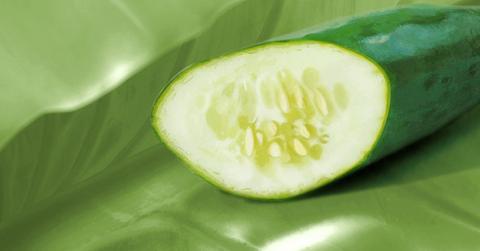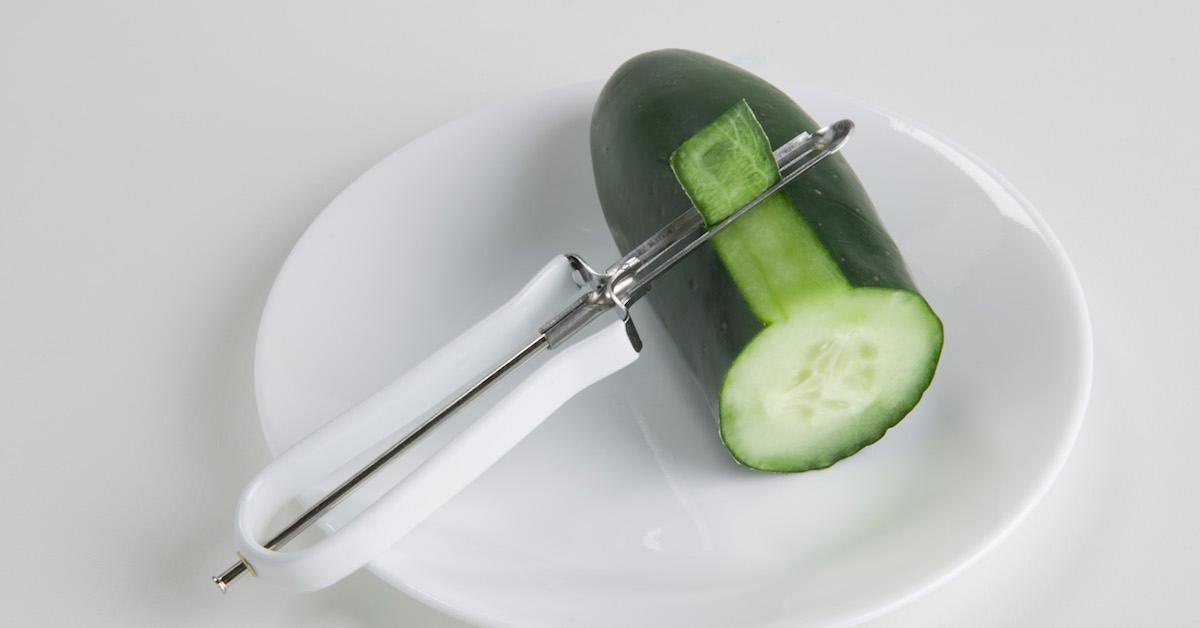Why Your Cucumber Leaves Are Turning Yellow, and How to Make Them Green Again
Published Feb. 24 2021, 4:46 p.m. ET

Cucumbers are refreshing summer treats that provide a wealth of vitamins, minerals, and hydration. One of the most widely-grown backyard veggies in the U.S., cucumbers can grow and produce mightily under the right circumstances. Still, if your cucumber leaves are starting to turn yellow, it might be time to examine your growing situation and find out which of your potential pickling produce’s needs aren’t being met.

Why are my cucumber leaves turning yellow?
According to GardeningVibe, the loss of green coloration could be caused by a loss of chlorophyll, the compound in plants that gives that distinct green color and is essential for converting sunlight into energy. Any loss of chlorophyll is known as chlorosis and it can be a death knell for your cucumber plant.
The solution can be rectified, of course, but the first step is determining what exactly is causing the chlorosis in the first place. The discoloration could be caused by a number of different factors, which we detail below.
Water problems
Cucumbers can be overwatered, just like any other plant. Cucumbers only need about 1 to 2 inches of water a week. Too much water could lead to oxygen-deprived roots, which, according to GardeningVibe, can cause the leaves to turn yellow or wilt. The problem could be caused by soil drainage, but you can rectify this problem by loosening the soil with sand or growing your cucumbers in raised gardening boxes. Underwatering can also cause wilting, though, so keep that in mind.
Soil problems
Cucumbers are notoriously heavy feeders when it comes to soil nutrients, and according to SFGate, their leaves can turn yellow if they aren’t getting enough nitrogen or potassium in their “diet.” Nitrogen is an essential nutrient when it comes to plant growth. It encourages foliage growth and is necessary to keep those leaves full, green, and healthy.
Adding nitrogen to the soil could put an end to the yellowing problem, and you can do this by adding some compost, coffee grounds, or other nitrogen-rich fertilizer to the soil. If your leaves are a deep yellow or bronze, then a lack of phosphorus could be the culprit. This sort of deficiency will result in less fruit production, so it won’t be hard to miss. If this is the case, try looking for organic fertilizers that are rich in phosphorus.
Note that either of these deficiencies could point to soil problems all throughout your yard, so you may want to spend some time preparing the soil for gardening before you plant the following year.
Sunlight problems
Most of us know to plant our cucumbers in a good, sunny spot in the garden, but yellowing, droopy leaves could be an indication that your cukes aren’t getting nearly enough sunlight. If you suspect this is the case, try moving them to a place where the sun will shine on them for at least six hours a day.
Pest problems
According to GardeningVibe, insects and other garden pests are a common cause of leaf discoloration. Aphids, whiteflies, potato leafhoppers, and spider mites are among the most common garden pests. Many of these little buggers suck nutrients and sap out of cucumber leaves, leaving small, yellow patches behind.
Plant experts recommend using insecticides on these types of bugs, but we would recommend using a homemade or natural insecticide rather than a potentially toxic one. You could also remove all the weeds and other grasses from your vegetable patch to minimize the number of insectile pests that can call your garden home.
As you can see, there are many root causes of chlorosis out there, but just as many solutions.